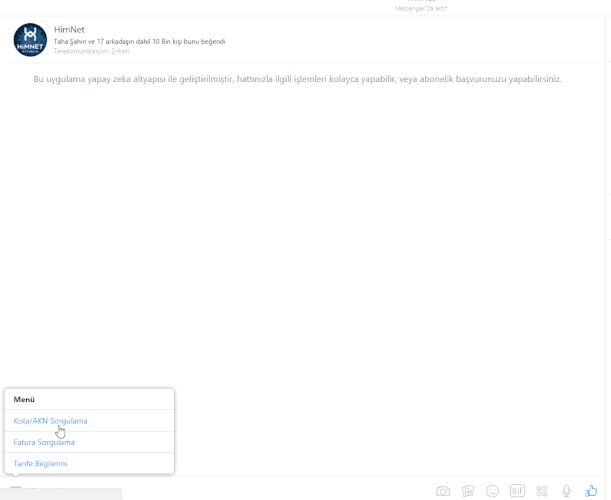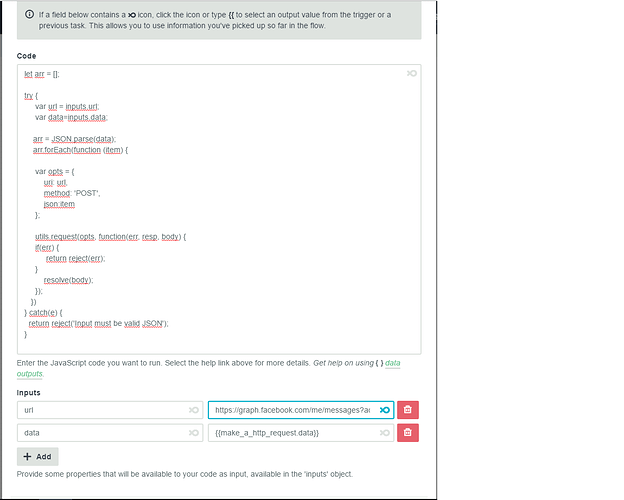Hi Guys,
Is there a way to “Loop” a given action?
For example I am returning the following data rows from a webhook, and want to send the user a message for each “row” returned by the webhook.
Currently the flow only sends the first row. Example data below.
Thanks
Data
[
{
“ReplyType”: “msg”,
“ReplyText”: “insert text here”,
“ResponsePath”: “…”
},
{
“ReplyType”: “msg”,
“ReplyText”: “insert text2 here”,
“ResponsePath”: “…”
}
]






